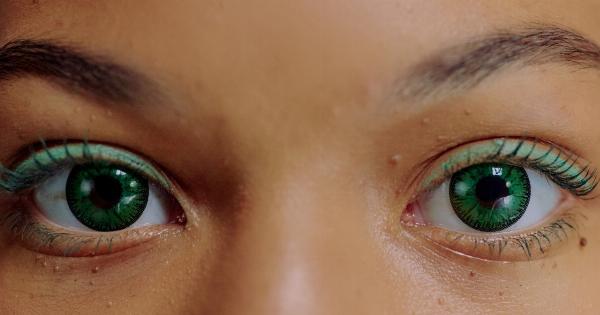Summer is the season for outdoor activities such as swimming, hiking, and picnics. However, many people forget to protect their eyes from the effects of UV radiation during this season.
What is UV Radiation?
UV radiation is a type of energy that comes from the sun. It is divided into three categories – UVA, UVB, and UVC. UVC radiation is absorbed by the atmosphere and does not affect humans.
However, both UVA and UVB radiation can have negative effects on the eyes if they are exposed for too long.
How Does UV Radiation Affect the Eyes?
UV radiation can cause damage to the skin around the eyes as well as to the eyes themselves. The following are some of the negative effects of UV radiation on the eyes:.
1. Photokeratitis
Photokeratitis is a condition where the cornea, which is the outermost layer of the eye, becomes inflamed due to excessive exposure to UV radiation. This condition is similar to sunburn on the skin and can cause pain, redness, and sensitivity to light.
Symptoms typically subside within a few days, but repeated exposure can cause long-term damage.
2. Cataracts
Cataracts are a clouding of the eye’s natural lens, which can lead to vision loss. Studies have shown that excessive exposure to UV radiation can increase the risk of developing cataracts.
The risk is highest for people who live in areas with high levels of UV radiation and those who spend a lot of time outdoors.
3. Macular Degeneration
Macular degeneration is a condition where the part of the retina called the macula deteriorates, leading to vision loss. UV radiation has been linked to an increased risk of macular degeneration.
How to Protect Your Eyes from UV Radiation
The following are some tips for protecting your eyes from the negative effects of UV radiation during the summer:.
1. Wear Sunglasses
Sunglasses with UV protection can help to block out harmful UV rays. Look for sunglasses that provide 100% protection against both UVA and UVB radiation.
Additionally, wraparound sunglasses can provide even more protection by blocking out UV rays from the sides and top of the sunglasses.
2. Wear a Hat
A wide-brimmed hat can provide additional protection to your eyes and the skin around them. Look for hats that have at least a 3-inch brim all around to provide adequate coverage.
3. Avoid Peak Sun Hours
UV radiation is strongest during the hours of 10am and 2pm. Whenever possible, avoid spending time in direct sunlight during these hours to reduce your risk of exposure to harmful UV rays.
4. Use UV-Blocking Contact Lenses
If you wear contact lenses, consider using ones that offer UV protection. However, these lenses should not be used as a substitute for sunglasses or a hat.
Conclusion
Protecting your eyes from the negative effects of UV radiation is crucial for maintaining healthy vision.
By wearing sunglasses, a hat, and avoiding peak sun hours, you can reduce your risk of conditions such as photokeratitis, cataracts, and macular degeneration.






























